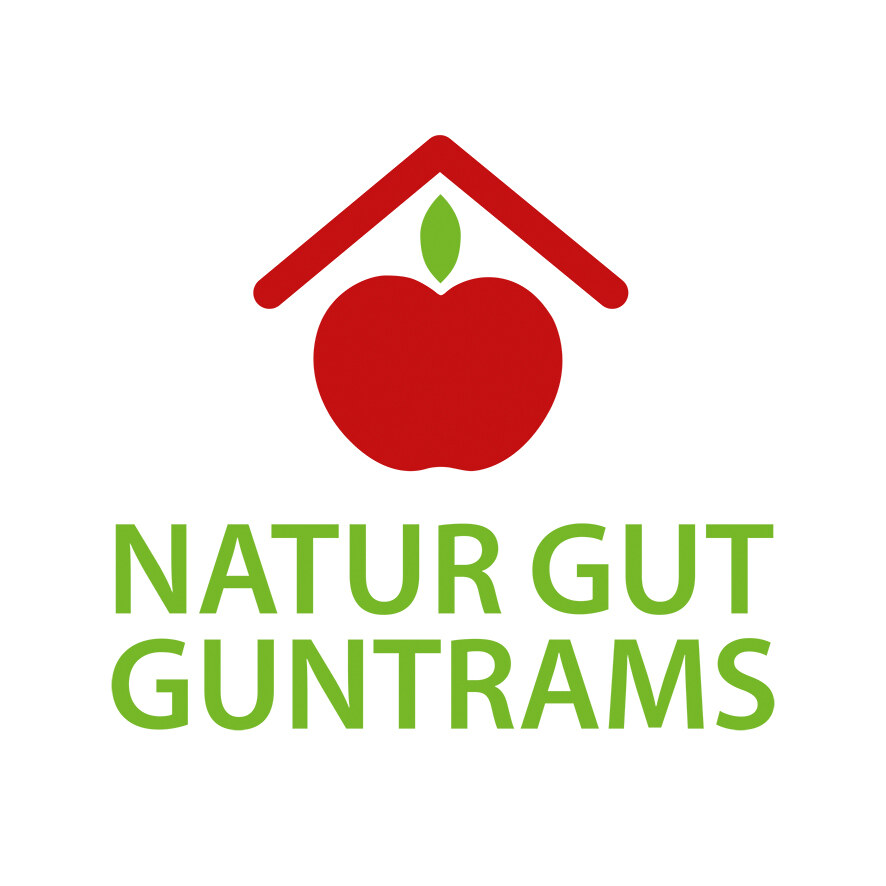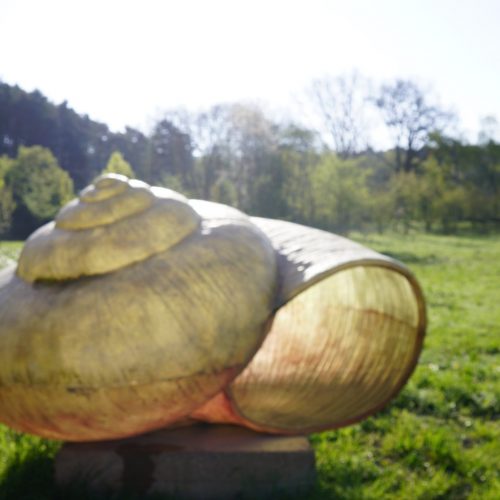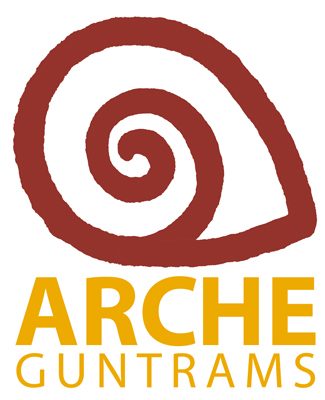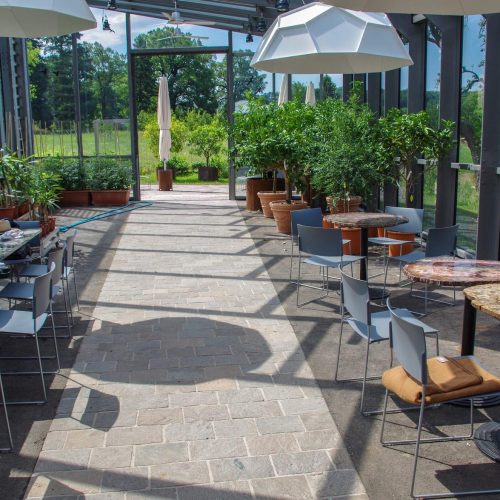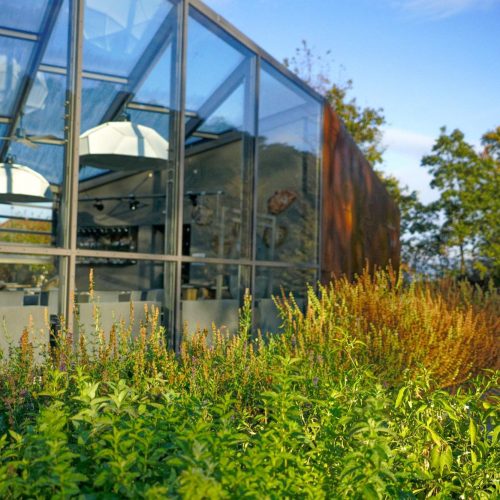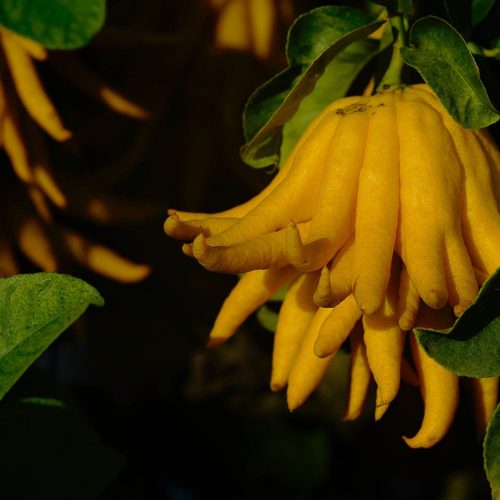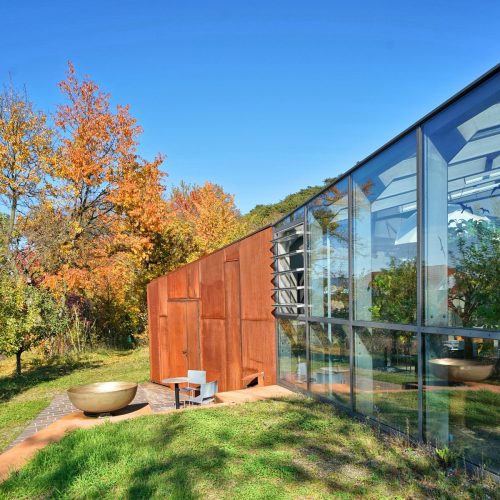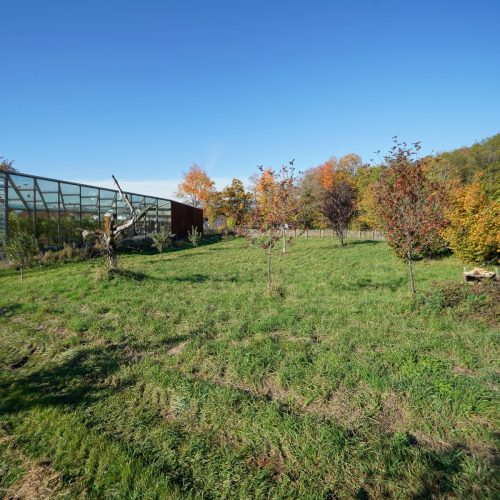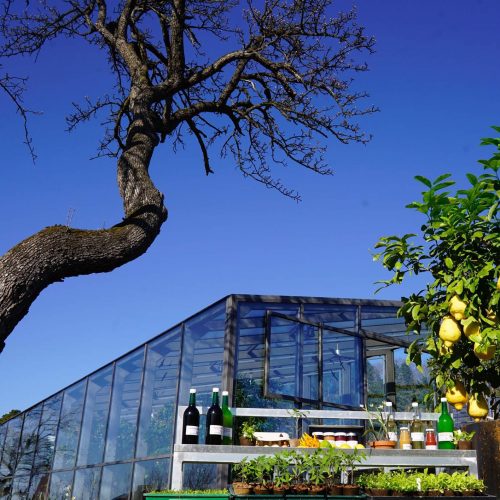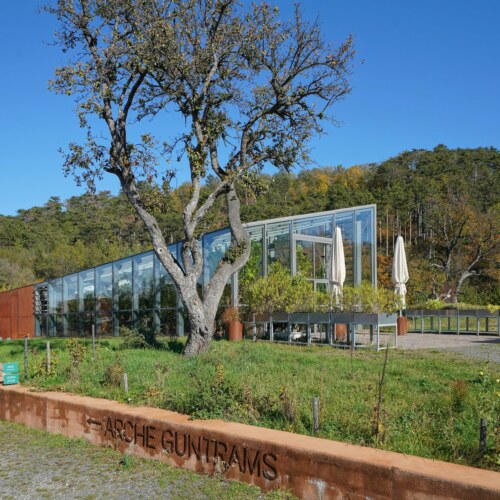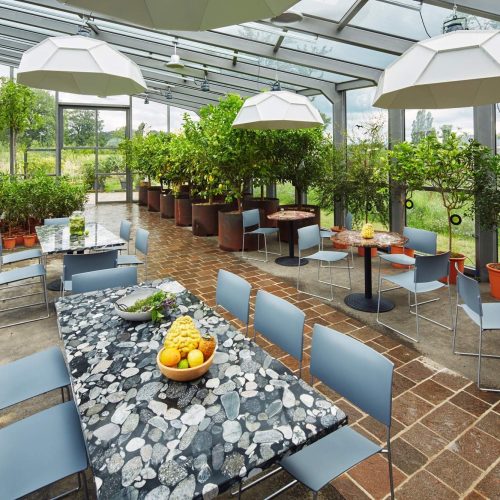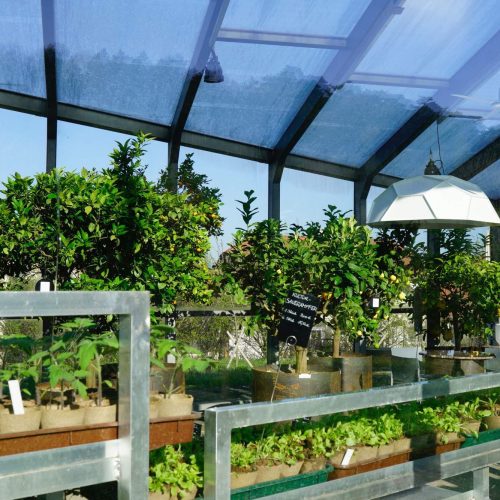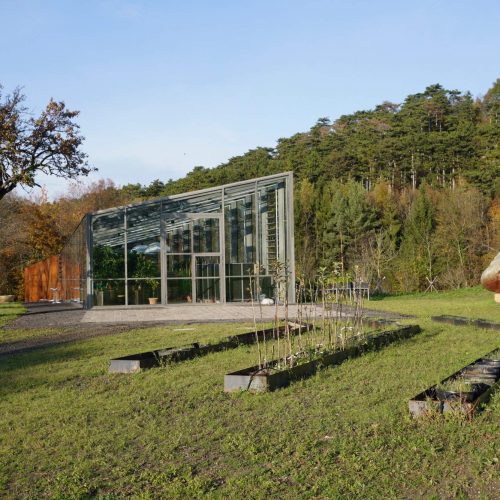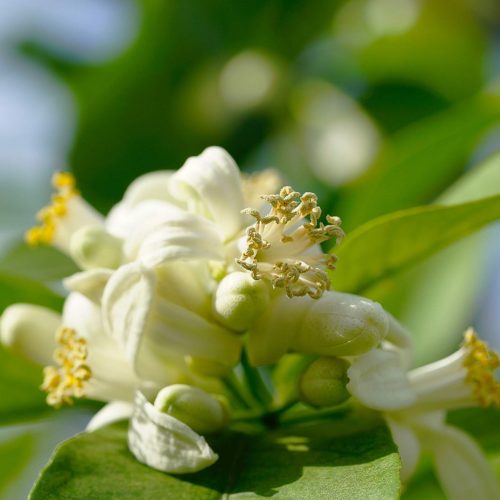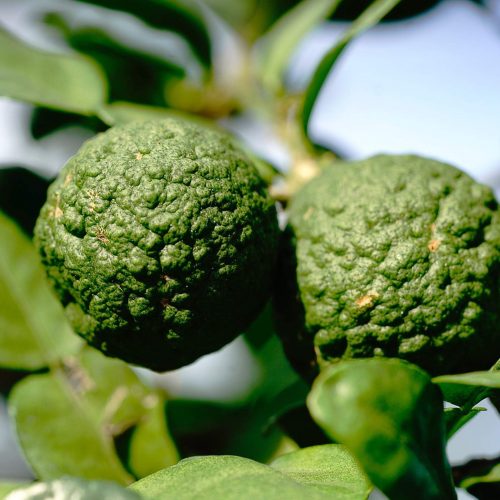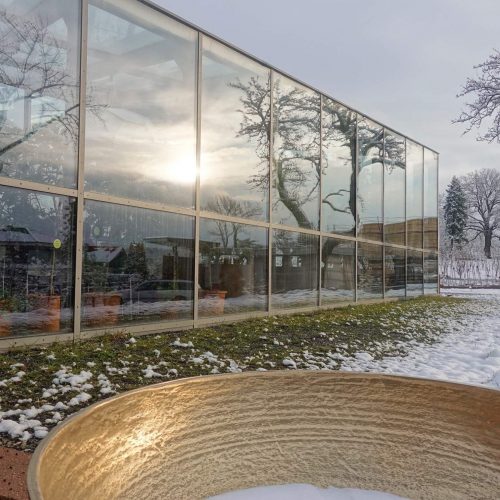More informationen on:
The Guntrams Ark looks after the Guntrams Crystal Garden Museum and organises sustainable renaturation and monitoring projects in the spirit of nature conservation.
The word sustainability is on everyone’s lips today. In advertising, it often degenerates into empty words. This is perhaps also due to the fact that sustainability is a multi-layered term.
What is more sustainable?
- An organic farm in Sicily that transports its citrus fruits over thousands of kilometres to the customer?
- Or a farm in the nearby hillscape that is not certified organic but only offers its harvest fruits in the regional area?
We think: Organic farming and respect for the regional environment should both be self-evident!
Moreover, at Guntrams Estate no diesel tractor drives through the orchards, but an electrically powered one; it is supplied with solar power from the farm’s own photovoltaic system. The natural processing of the harvested fruits is also largely CO2-neutral.
The Guntrams Ark is also beginning to renaturalise the nearby alluvial forest along the Schwarza river. The aim is to significantly increase the biodiversity in this habitat.
The guidelines of the Ark Guntrams:
“Small, slow, short & simple” are the four guidelines presented by the founder of the Guntrams Ark, Stefan M. Gergely, in a German book called SRACH BILDER as follows: “Small” stands for manageable units, “slow” for a new thoughtfulness, “short” refers to the advantages of short transport routes and “simple” to simple technical structures and devices.
For the national economist Leopold Kohr, born in Salzburg in 1909, sheer size was the central problem of human society. Rather, a humane living environment had to be designed according to the dimensions of the human being: thus the slogan “small is beautiful” was born.
For the author Manfred Osten, the famous German poet and thinker Johann Wolfgang von Goethe had already in the 18th century written something astonishingly contemporary on the subject of haste and deceleration: “alles veloziferisch” (everything velociferous), Goethe called it. “The problems of a society that develops beyond its optimal size,” Kohr also preached, “grow . . . with time more rapidly than the human capacity to cope with them” – hence “slow is beautiful”.
Thirdly, submission to the dictates of the cheapest prime costs leads to a dramatic increase in the global transport of goods. The associated environmental damage, however, is still not included in the unit costs. Consumers can only defend themselves against this by buying “short” – i.e. short transport routes.
Finally, opaque structures and excessive technical standards are making our living environment more and more complex. Cash is to be abolished, bank branches are closing and in return online banking is becoming so complicated that many people already fail when logging into the system. Why will every small company soon need an IT officer? “Simple is beautiful” therefore stands for simple and transparent technical applications and structures as well as for self-sufficient units that are viable even without networking.
More informationen on:
